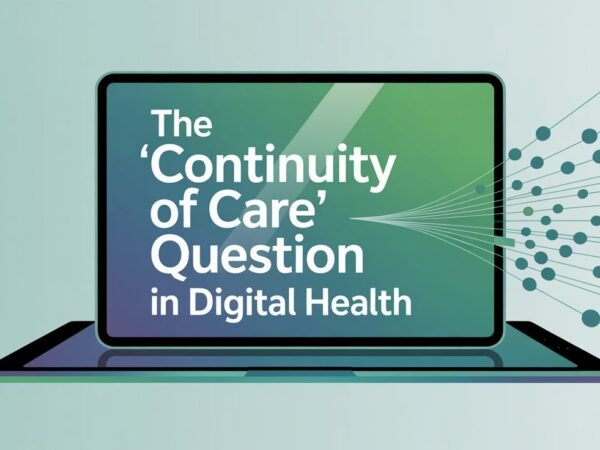Understanding oneself is a lifelong journey, often involving exploring various aspects of our personality and cognitive abilities. A mental age test is an intriguing method to gain insight into our cognitive and emotional development. This article delves into mental age, its significance, and how you can determine and interpret your mental age.
What is Mental Age?
Mental age is a concept that reflects an individual’s cognitive abilities in comparison to the average abilities of others at different chronological ages. It was first introduced by the French psychologist Alfred Binet in the early 1900s. Binet intended to create a measure to identify children needing educational assistance by comparing their cognitive performance to age norms.
Unlike chronological age, a fixed measure based on the number of years a person has lived, mental age is fluid and can change based on various factors such as learning, experiences, and emotional growth. A person’s mental age might be higher or lower than their actual age, indicating their cognitive maturity or lack thereof.
The Difference Between Mental Age and Chronological Age
Chronological age refers to the exact number of years, months, and days a person has lived since birth. It is a straightforward measure used for legal and social purposes, such as determining when a person can drive, vote, or retire. Mental age, on the other hand, represents cognitive and emotional maturity, which can vary significantly from one individual to another regardless of chronological age.
For instance, a 25-year-old might exhibit the cognitive and emotional maturity typical of a 30-year-old, indicating a higher mental age. Conversely, another individual of the same chronological age might display the cognitive characteristics of a teenager, suggesting a lower mental age. This disparity highlights the importance of understanding mental age as it provides a more nuanced view of an individual’s intellectual and emotional state.
Types of Mental Age Tests
Various types of mental age tests are available, ranging from informal online quizzes to more structured clinical assessments.
Online Quizzes
Online mental age tests are famous for their simplicity and accessibility. Websites like Arealme and YourMentalAge offer quick assessments that provide a fun and insightful look into one’s mental age. These tests typically include questions to gauge preferences, behaviors, and reactions to different scenarios. While they can be entertaining and provide a general idea of your mental age, it’s important to remember that these tests are not scientifically validated and should be taken with a grain of salt.
Clinical Assessments
Clinical assessments conducted by psychologists or other mental health professionals are recommended for a more accurate and detailed evaluation. These assessments use standardized intelligence tests and psychological evaluations to measure cognitive abilities and emotional maturity. Tools like the Wechsler Adult Intelligence Scale (WAIS) and the Stanford-Binet Intelligence Scales are commonly used in these settings. These assessments can provide valuable insights, mainly for educational or therapeutic purposes.
How to Take a Mental Age Test
Taking a mental age test is straightforward, but to ensure accurate results, it’s essential to follow a few guidelines:
- Choose a Reputable Source: Select a mental age test from a reputable website or seek a professional assessment.
- Be Honest: Answer all questions honestly. Trying to make your answers appear more mature or youthful can skew the results.
- Avoid Overthinking: Go with your first instinct when answering questions. Overanalyzing can lead to inaccurate responses.
- Reflect on the Results: Use the results as a starting point for self-reflection. Consider what they might reveal about your cognitive and emotional development.
Analyzing Mental Age Test Results
The results of a mental age test can provide fascinating insights into your cognitive and emotional state. Here’s how to interpret them:
Younger Mental Age
If your mental age is younger than your chronological age, it could indicate a youthful outlook and a sense of wonder and curiosity. People with a younger mental age often connect well with children, enjoy playful activities, and maintain a positive attitude toward life. However, it might also suggest areas for growth regarding responsibility and emotional maturity.
Older Mental Age
An older mental age signifies wisdom, stability, and a deeper understanding of oneself and the world. Individuals with an older mental age typically enjoy quiet, reflective activities and have a well-established routine. They might have faced experiences that led to accelerated emotional growth, such as significant life events or responsibilities at a young age.
Improving Your Mental Age
Whether you wish to increase your mental age to match your chronological age or want to enhance your cognitive and emotional maturity, there are several strategies you can employ:
Cognitive Development
- Continuous Learning: Engage in lifelong learning through reading, taking courses, or exploring new hobbies. This keeps the mind active and promotes cognitive growth.
- Brain Exercises: Activities like puzzles, memory, and strategic games can help enhance cognitive abilities.
- Mindfulness and Meditation: These practices improve focus, reduce stress, and promote mental clarity.
Emotional Intelligence Enhancement
- Self-Reflection: Regularly reflect on your thoughts and emotions to better understand yourself.
- Empathy: Practice empathy by trying to understand and share the feelings of others. This enhances emotional connections and maturity.
- Emotional Regulation: Learn techniques to manage and express emotions healthily. This includes stress management strategies and practical communication skills.
Lifestyle Changes for Better Mental Health
- Healthy Diet: A nutritious diet supports brain health and overall well-being.
- Regular Exercise: Physical activity is linked to improved cognitive function and emotional stability.
- Adequate Sleep: Ensure you get enough rest to support your mental and emotional health.
Controversies and Criticisms
While mental age tests can be fun and insightful, they are not without their controversies and criticisms. One primary concern is their scientific validity. Many online tests lack rigorous scientific backing and can lead to misleading results. Moreover, these tests often fail to account for cultural, social, and individual differences that can affect cognitive and emotional development.
Ethical considerations arise when these tests are misused in educational or professional settings. Mental age tests should be used as a supplementary tool rather than a definitive measure of someone’s capabilities or potential.
Practical Applications
Despite the criticisms, mental age tests have practical applications in various fields:
Educational Settings
Mental age assessments can help identify students who may benefit from tailored educational programs or additional support. Understanding a student’s mental age can guide educators in developing appropriate teaching strategies that match their cognitive and emotional development.
Workplace and Career Development
Mental age tests can be used in the workplace to understand employees’ cognitive and emotional strengths and weaknesses. This information can inform team dynamics, leadership development, and career planning decisions.
Personal Relationships and Social Interactions
Knowing your mental age can improve personal relationships by fostering self-awareness and understanding of others. It can help you navigate social interactions more effectively and build stronger connections with people of different ages and backgrounds.
Conclusion
Understanding your mental age through a mental age test can provide valuable insights into your cognitive and emotional development. While these tests are not definitive measures, they offer a unique perspective on your intellectual and emotional maturity. By reflecting on the results and implementing growth strategies, you can enhance your cognitive abilities and emotional intelligence, leading to a more fulfilling and balanced life. Remember, self-discovery is ongoing, and every step you take toward understanding yourself better is a step toward personal growth and improvement.
FAQs
What is Mental Age?
Mental age represents a person’s cognitive abilities compared to the average abilities of others at different chronological ages.
How Accurate are Online Mental Age Tests?
Online mental age tests can be entertaining and provide a general idea of your mental age, but they lack scientific validation and should not be taken too seriously.
Can Mental Age Change Over Time?
Yes, mental age can change based on various factors such as learning, experiences, and emotional growth.
How Can I Improve My Mental Age?
To improve your mental age, engage in continuous learning, practice brain exercises, enhance emotional intelligence, and adopt a healthy lifestyle.
By understanding and exploring the concept of mental age, you can gain deeper insights into your cognitive and emotional self, paving the way for continuous personal development and a more prosperous, more fulfilling life.
Do Read: Testosterone for Sale: Explore the Benefits of Testosterone













